 Are we on the wrong track?
Are we on the wrong track?
Have we missed the point?
Everybody is jumping on the bandwagon, bloggers, governments, environmentalist, but have we picked the wrong band?
It would appear so.
Whole cities are banning plastic supermarket bags or charging a small fee. Okay, this is good, but it’s not the answer. Plastic shopping bags are not the villain!
The villain is is the other 99,97% that we are not complaining about, or are, but not so loudly.
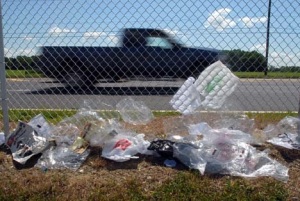 The plastic shopping bag is merely the most visible villain.
The plastic shopping bag is merely the most visible villain.
They are like roadside billboards, seen everywhere, seen in the garbage dumps, seen being blown by the wind in parks and countryside. They are a constant reminder and hence we see them as the villain.
But, here’s the surprise, the plastic shopping bag on makes for 0.03% of all plastic garbage, just 0.03% and we are howling ‘villain!’
Plastic bags: symbol of consumer waste may ignore worse offenders
Campaign to consign polluting carrier bag to the bin of history misses valuable point, say recyclers and packaging firms

Plastic bag use is still rising in England despite wholesale reductions of use in Northern Ireland and Wales. Photograph: Nigel Barklie/Rex Features
The greatest contribution that plastic bags have made to human society is their use as a toilet. In developing countries, the bags are commonly used as a repository for human faeces, where they end up hanging from trees. It is not pretty, and not particularly environmentally friendly, but it is better than the alternatives, of allowing detritus to make its way into drinking water supplies and thus spreading disease.
Still plastic bags are found polluting waterways and ending up in the sea, where they are a menace to marine life. Earlier this year, a whale was found to have died of plastic pollution, its guts clogged up with our packaging castoffs. The problem is so great that there is now a floating pool of rubbish in the Pacific, greater in extent than any other detectable man-made impact on the environment.
So when Nick Clegg, depute prime minister, announced a charge for plastic bags at the Liberal Democrat annual conference, there was cheering among delegates hungry for a new way to emphasise the party’s commitment to the environment. The charge – if it comes about, and there are doubts as to how it will be implemented, and its efficacy as a result – should deter people from using the bags. And in the process, tackle a potent symbol of throw-away consumerism.
But plastic bags are only a small part of the problem. They account for only 0.03% of marine litter, according to the industry organisation Incpen.
The packaging that we all use, in day-to-day activities from buying food in supermarkets to our deliveries from online shopping centres, has a much greater – though less obvious – effect on pollution. A much greater percentage of non-biodegradable litter comes from food packaging such as the wrappers around food stuffs in supermarkets. Moves are afoot to cut that, supported by the retailers themselves, but there is still a long way to go.
Charges for plastic bags have already been introduced in parts of the UK, including Wales and Northern Ireland, so we already have an indication of how the policy could work in practice. Anna Beggs, from Northern Ireland, where the charge is already in force, told the Guardian: “I try to remember to bring my own bags so that I don’t have to pay. If most people do that it will cut down on the plastic bag blight, especially in the countryside.” The charge is 5p, compared with 25p in Ireland.
Charging for plastic bags demonstrably cuts down on their use. A Welsh Assembly official said: “Since we introduced our 5p carrier bag charge in October 2011, bag use in Wales has reduced by up to 96% in some retail sectors and over £4m worth of proceeds from the charge have been passed onto good causes, which include environmental charities such as Keep Wales Tidy, children’s charities and cancer charities. Since the introduction of the charge, people in Wales have changed the way they shop. It has encouraged shoppers to stop unnecessarily accepting new bags every time they are at the till and checkouts in Wales are now full of people reusing their bags.”
The charge is not technically a tax but is paid into a fund that goes to good causes.
Maggie Dunn, a Labour party activist, says that charging for the bags in England, as Clegg has suggested, is overdue. “I support this – it is unacceptable, how many bags we throw away. We need to think about the consequences – they are in the sea, they are harming nature.” Her view is that people will accept the proposed charges, if they are introduced, but that they need to be higher to people from using the bags. She suggests 50p would be more effective.
Despite its reputation as the epitome of extravagant waste, packaging such as plastic films and paper wrappings for food, also play their part in environmental pollution. Companies and retailers that routinely rely on packaging point out that when food is spoiled for lack of preservative wrappings, the environmental cost is much greater than the impact of bags. In India, for example, and other developing countries, the UN has calculated that the spoiling of edible foods means that as little as half of the quantity produced makes it to market in an edible condition. The lack of cold storage facilities and poor refrigeration accounts for some of that, but the waste is one of the biggest factors in making it hard for the world to feed itself – an increasing problem in the context of a global population estimated to top 10bn by 2050, and the need to increase food production by more than half to cater to that rapidly growing need, according to the UN.
“People equate plastic with waste and that is understandable, but what people don’t realise is that packaging has a job to do – ensuring that the product doesn’t get overheated on the dock, or in the lorry, or to deliver the goods in a good condition,” says Jane Bickerstaffe of Incpen.
Take a case in point – cucumber growers, who need to preserve their fast deteriorating food as soon as it is picked. “A cucumber wrapped in plastic needs only about 1.5 grams of plastic in its wrapper, but that extends the life of the product from about three days to at least 15 days, and when you look at the effort and environmental impact of growing a cucumber, the water and the fertiliser and all the rest, you can see we are preserving resources.”
Bickerstaffe is alive to the impacts of plastic packaging, but she urges people to take a broader view than the rubbish that they fill their household bins with. “It is understandable that people do not think beyond their own experience. They take it for granted. But they don’t realise that the vegetable wouldn’t have got to the shop without plastic.” Companies are also taking the lead in recycling plastics, reducing the amount of packaging they use – which also cuts their costs – and finding new materials that can be substituted for polymers. But Bickerstaffe admits: “I don’t think we have the answers yet.”










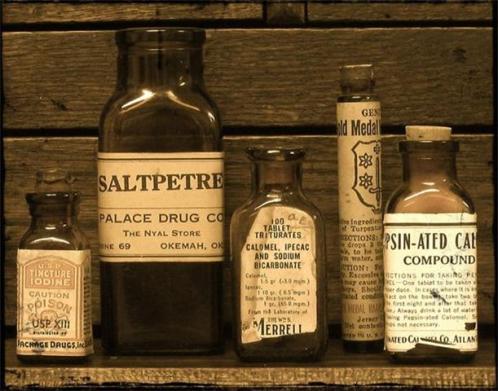


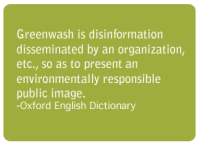
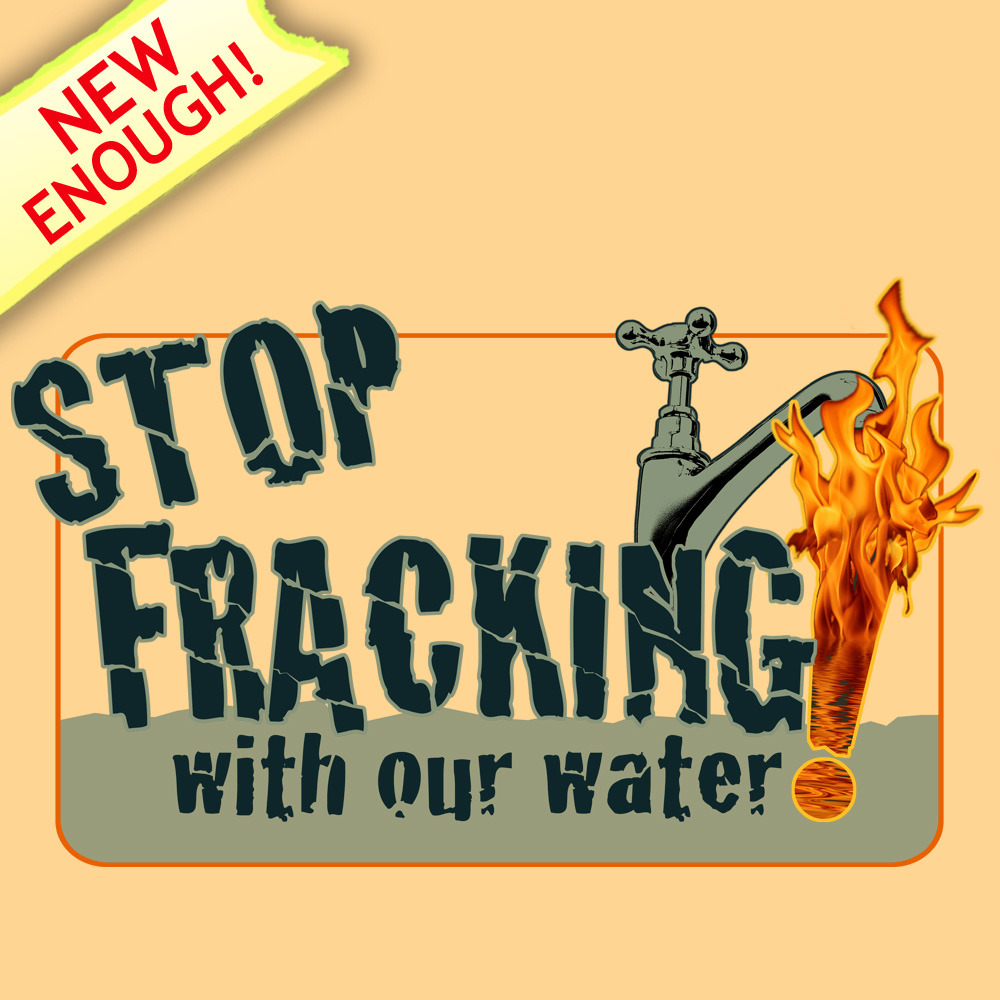

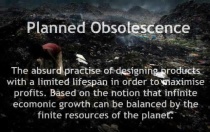





Posted by Alex Jones on September 23, 2013 at 4:33 pm
Attacking plastic bags is a start, but more needs to be done.
LikeLike
Posted by argentumvulgaris on September 23, 2013 at 6:21 pm
>Alex, they are a start, a very small modest start. We need to attack the real problems.
AV
LikeLike
Posted by livingsimplyfree on September 23, 2013 at 5:42 pm
More reason to buy locally grown produce, or grow your own. The plastic on produce is one of the things I am trying to find a way to avoid. By shopping the farmers markets and my own garden I was able to avoid the grocery store all summer.
Plastic shopping bags is a good place to start. I have believed this can easily be done. The Aldi stores serve the poorest people and they have always charged for their bags. You can collect cardboard boxes through the store to carry your food home or bring your own, of pay .25 per plastic bag. If the poorest in society can bring their own and use the cardboard boxes the store leaves out when stocking then we all can do it.
LikeLike
Posted by argentumvulgaris on September 23, 2013 at 6:32 pm
>lsf, absolutely. We should all be doing that, and food wastage and plastic pollution reduction would be a natural consequence.
AV
LikeLike
Posted by CelloMom On Cars on September 23, 2013 at 6:26 pm
I’m not convinced by the claim that plastic packaging is “necessary” for keeping foods fresh longer. I’ve always bought cucumber on the farmers’ market: it’s not plastic wrapped, and it’s fine. And cheaper than the wrapped ones in the store.
As for “ensuring that the product doesn’t get overheated on the dock, or in the lorry”, my experience has been the opposite: plastic doesn’t allow produce to breathe, and then decay sets in earlier – unless you refrigerate the heck out of it, which costs additional energy.
LikeLike
Posted by argentumvulgaris on September 23, 2013 at 6:55 pm
>Cello, quite agree, much of the ‘necessary’ banter is justification. But, I have to add that food at your average farmer’s market doesn’t come from far away, or worse imported.
Personally, if I am stuck buying plastic wrapped produce, it comes out of the plastic as soon as I get home to prevent the stuff rotting.
AV
LikeLike
Posted by Nancy Adams on September 26, 2013 at 3:03 pm
I’ve also noticed that juice and other beverages are commonly bottled in plastic rather than glass, despite the environmental outcries. I try to avoid those when possible, not only because of plastic’s effect on the environment, but also because I worry about it tainting the juice. There are some I’ve stopped buying because the plastic gives it a funny taste.
Yes, sadly plastic bags are only the tip of the iceberg, but I agree with others that it’s at least a good place to start. Had no idea, however, that they were such a tiny percentage of overall plastic waste. Sigh.
Feels like we’re just sticking our fingers in a dike, while the overall structure is just ready to come crashing down.
Thanks for the update, AV!
LikeLike
Posted by argentumvulgaris on September 26, 2013 at 3:53 pm
>Nancy, basically, that’s what we’re doing… sticking our fingers in the dyke.
I do not buy juice, I make it at home, I drink beer from bottles, not cans, I refuse to buy a beer can. I don’t drink/buy any soda, only sparkling mineral water, unfortunately that only comes in plastic. I don’t buy jams or spreads in plastic, I opt for glass.
Thanks for stopping by.
AV
LikeLike